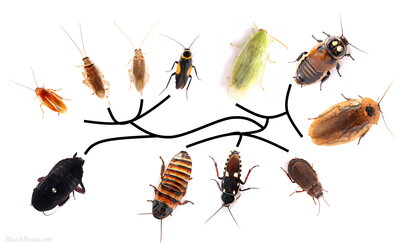
The Royal Entomological Society (RES) shared its journal award winners from the 2021-2023 publication years. These awards are dedicated to the best articles led by early career entomologists. Amongst the winners is the Entomology Department’s Assistant Professor, Dominic Evangelista. His article, “Assessing support for Blaberoidea phylogeny suggests optimal locus quality,” was published in Systematic Entomology.
Dominic is just one of twelve winners for this award. The RES celebrates outstanding early-career entomologists through its best paper prizes, now awarded annually across the Society’s seven journals. Starting in 2024, these awards aim to support the career development of emerging researchers and highlight exceptional work published in RES journals.

To be eligible, authors must be early-career-researchers- defined as within ten years of completing their undergraduate degree or with less than ten years in entomology, accounting for career breaks. Editors assess papers based on their relevance, broad appeal, quality of communication, and alignment with the journal’s focus. Winners receive a cash prize, free registration to the RES annual conference, and a year’s membership in the society.
Dominic’s winning article was on his research which uses phylogenomics to focus on cockroaches in a group called Blaberoidea. The research team looked at 265 genes from 102 cockroach species and 22 related species. The goal was to figure out which types of genes are the most useful for building evolutionary trees (called phylogenies). The team studied traits like how fast the genes change, how much the gene sequences differ, and how much information is preserved in them over time.

The results from the article showed that the genes that change faster but still preserve information are the most useful. Based on these results, the research team picked 100 of the best genes instead of using all 265. The smaller dataset gave almost the same evolutionary tree but worked much faster (4-6 times faster) and had better statistical support. Using these improved methods, they identified and named three new groups of cockroaches and updated the definitions of two existing families (Pseudophyllodromiidae and Ectobiidae). These updates include new features to help classify these cockroaches better.